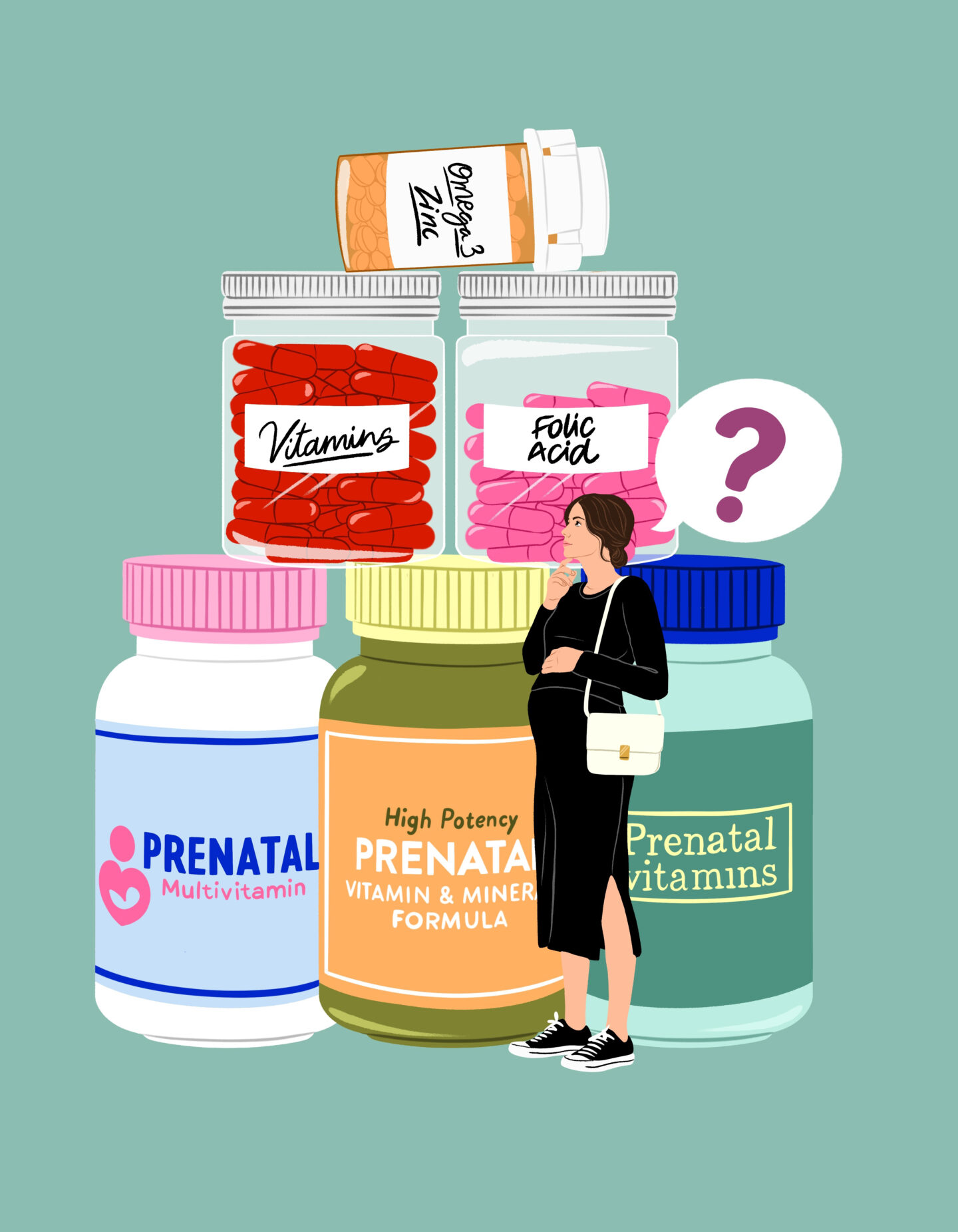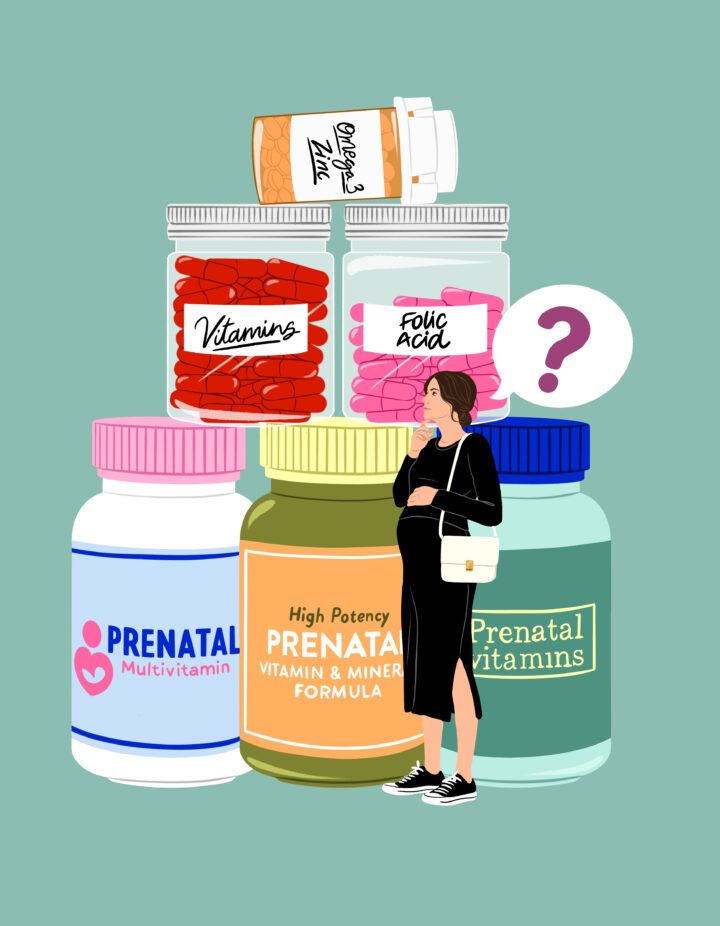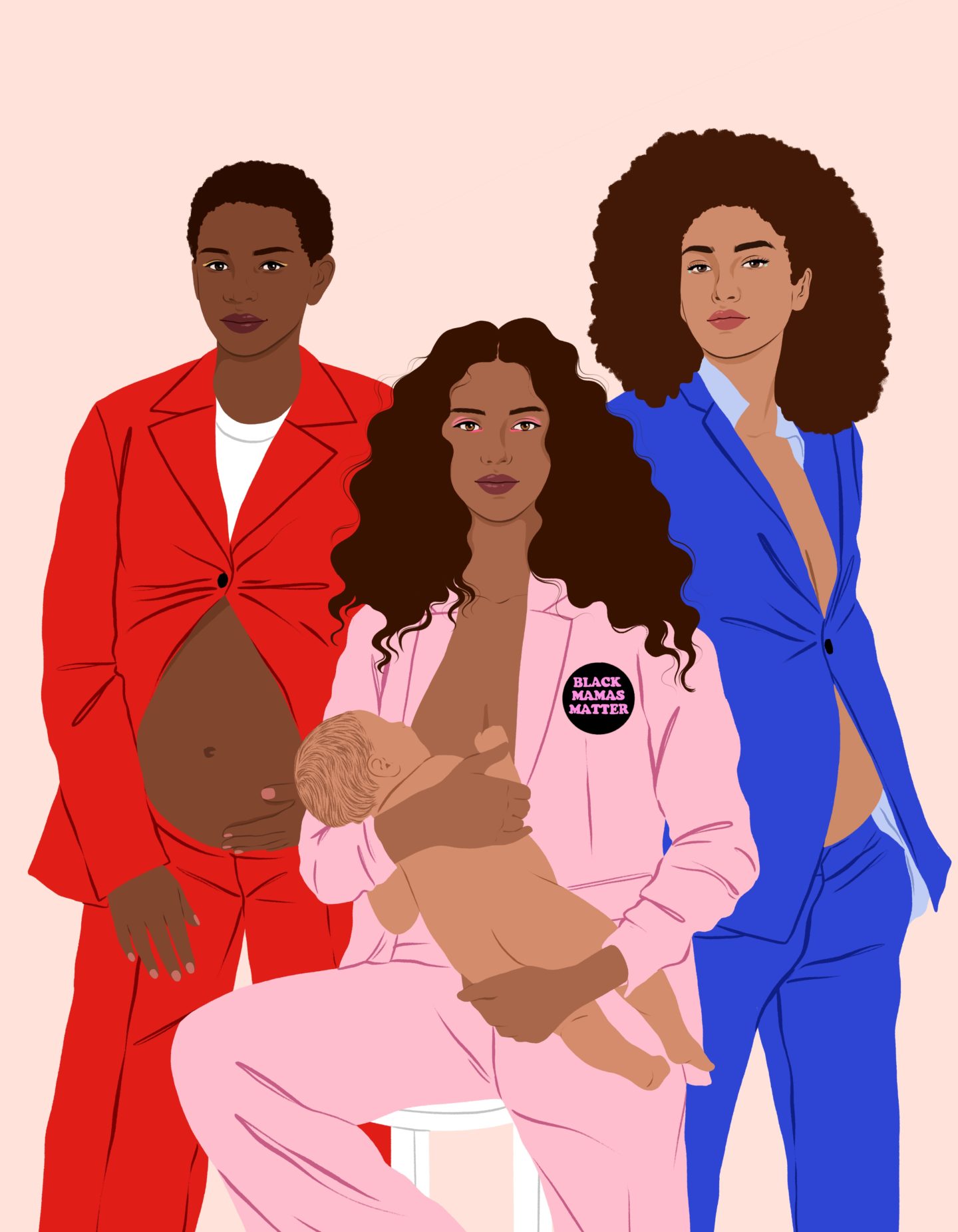If you’re like us, your kitchen counter looks more like a meth lab than anything else. Between ashwagandha, fish oil, magnesium, CBD, our bevy of tinctures, powders and jars of buttery, sticky adaptogens – these products have given a whole new meaning to the term “supplement.” But during pregnancy, not everything you dose is considered safe for babe. Peep our list below of the add-ons to your diet that are A-OK during pregnancy and those you should skip ’til after babe (reason being is that, for the most part, they haven’t been properly tested). If you have any specific questions on what we’ve outlined below, or anything not on this list, always consult your doctor or healthcare provider.
Dose It UP
1. Prenatal vitamins
These multivitamins that are specially formulated to meet babe’s demand for micronutrients during pregnancy. Observational studies have shown that supplementing with prenatal vitamins reduces the risk of preterm birth and preeclampsia.
2. Folate
This B vitamin plays an integral role in DNA synthesis, red blood cell production and fetal growth and development. Folic Acid is the synthetic form of folate found in supplements. Healthcare providers generally recommend at least 600 micrograms of folate OR folic acid per day to combat risk of neural tube defects and congenital abnormalities
3. Iron
Iron is critical for oxygen transport and healthy growth and development of your baby and the placenta. The need for iron increases significantly during pregnancy, as maternal blood volume increases by about 45 percent. In the United States, the prevalence of iron deficiency in pregnant women is around 18 percent, and 5 percent of these women have anemia, which is associated with preterm delivery, maternal depression, and infant anemia.
The recommended intake of 27 milligrams (mg) iron per day can be met through most prenatal vitamins. However, if you have iron deficiency or anemia, you’ll need higher doses of iron, managed by your doctor.
4. Vitamin D
This fat-soluble vitamin is important for immune function, bone health, and cell division. Vitamin D deficiency during pregnancy has been linked to an increased risk of cesarean section, preeclampsia, preterm birth, and gestational diabetes.
The current recommended intake of vitamin D during pregnancy is 600 IU or 15 mcg per day. However, some experts suggest that vitamin D needs during pregnancy are much higher. Check in with your doctor regarding screening for vitamin D deficiency and proper supplementation.
5. Magnesium
This mineral plays critical roles in immune, muscle, and nerve function. Magnesium deficiency during pregnancy may increase the risk of chronic hypertension and premature labor. Some studies suggest that supplementing with magnesium may reduce the risk of complications like fetal growth restriction and preterm birth.
6. Ginger
Ginger root is commonly used as a spice and herbal supplement. It’s both safe and effective for treating pregnancy-induced nausea and vomiting.
7. Fish oil
Fish oil contains docosahexaenoic acid (DHA) and eicosapentaenoic acid (EPA), two essential fatty acids that are important for baby’s brain development.
8. Probiotics
These living microorganisms are thought to benefit digestive health. Given increased general awareness of gut health, many parents-to-be turn to probiotics. Many studies have shown that probiotics are safe to take during pregnancy.
9. Choline
Choline plays a vital role in baby’s brain development and helps to prevent abnormalities of the brain and spine. The current recommended daily allowance of choline during pregnancy (450 mg per day) has been thought to be inadequate and that an intake closer to 930 mg per day
SKIP ‘EM
1. Vitamin A
Although this vitamin is extremely important for fetal vision development and immune function (it’s present in your prenatal vitamin), too much vitamin A can be harmful. This accumulation can have toxic effects on the body and lead to liver damage. It can even cause birth defects.
2. Vitamin E
This fat-soluble vitamin plays many important roles in the body and is involved in gene expression and immune function. While vitamin E is very important for health, it’s recommended that you don’t supplement with it.
3. Black cohosh
This member of the buttercup family is used to control hot flashes and menstrual cramps but isn’t safe to take during pregnancy, as it can cause uterine contractions and could induce preterm labor.
4. Goldenseal
This plant is commonly used as a dietary supplement to treat respiratory infections and diarrhea. It contains berberine, which has been shown to worsen jaundice in infants. It can lead to a condition called kernicterus, a rare type of brain damage that can be fatal.
5. Dong quai
This Chinese root has been used for over 1,000 years to treat everything from menstrual cramps to high blood pressure. But when preg, you should avoid dong quai as it may stimulate uterine contractions, raising the risk of miscarriage.
6. Yohimbe
This supplement made from the bark of a tree native to Africa is used as an herbal remedy to treat a range of conditions from erectile dysfunction to obesity. It’s a pregnancy no-no as it has been associated with dangerous side effects like high blood pressure, heart attacks, and seizures.
7. Other herbal supplements considered unsafe during pregnancy
It’s best to avoid the following:
- saw palmetto
- tansy
- red clover
- angelica
- yarrow
- wormwood
- blue cohosh
- pennyroyal
- ephedra
- Mugwort
- Ashwagandha
The bottom line….
Doing all the good stuff like eating well, working out, sleeping enough and minimizing stress is the best way to ensure a healthy pregnancy. Although supplements can be necessary and helpful in some circumstances, always check in with your medical provider if you have questions on what to take and how much.




